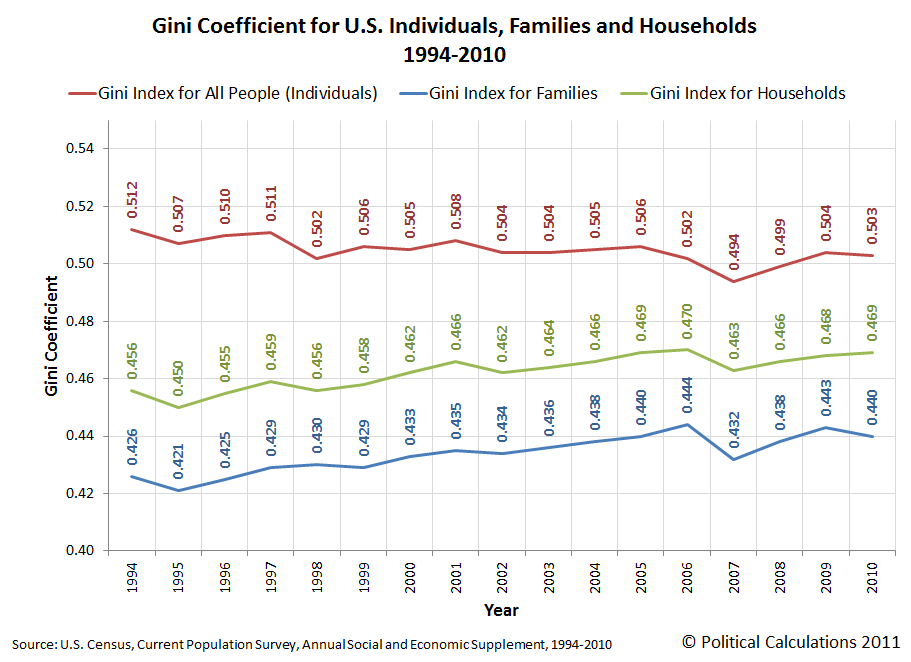Economists use a an index called the “Gini coefficient” to measure income equality or inequality, as the case may be. The scale of the coefficient goes from zero to one. The lower the number the more equal the incomes. The blog Political Calculations takes a look at the Gini coefficients for US individuals, families, and households from 1994-2010 and discovers something quite amazing. For individuals, which is probably the most relevant since paychecks are made out to people not families or households, there has actually been a slight decline in income inequality, and for the other two categories there has been a slight (in the hundredths of a point) increase. (Be sure to read the website’s discussion or this.)


